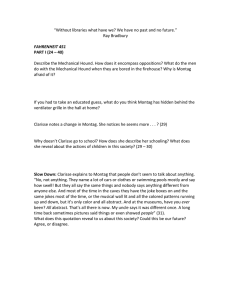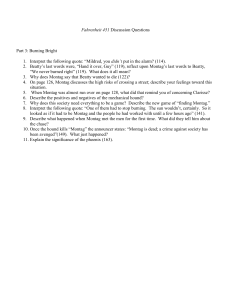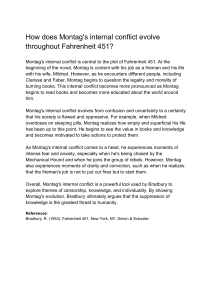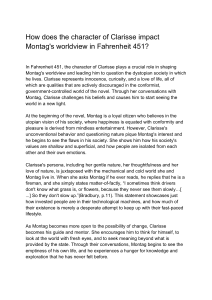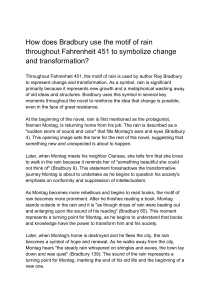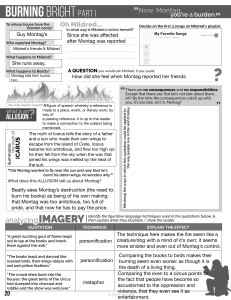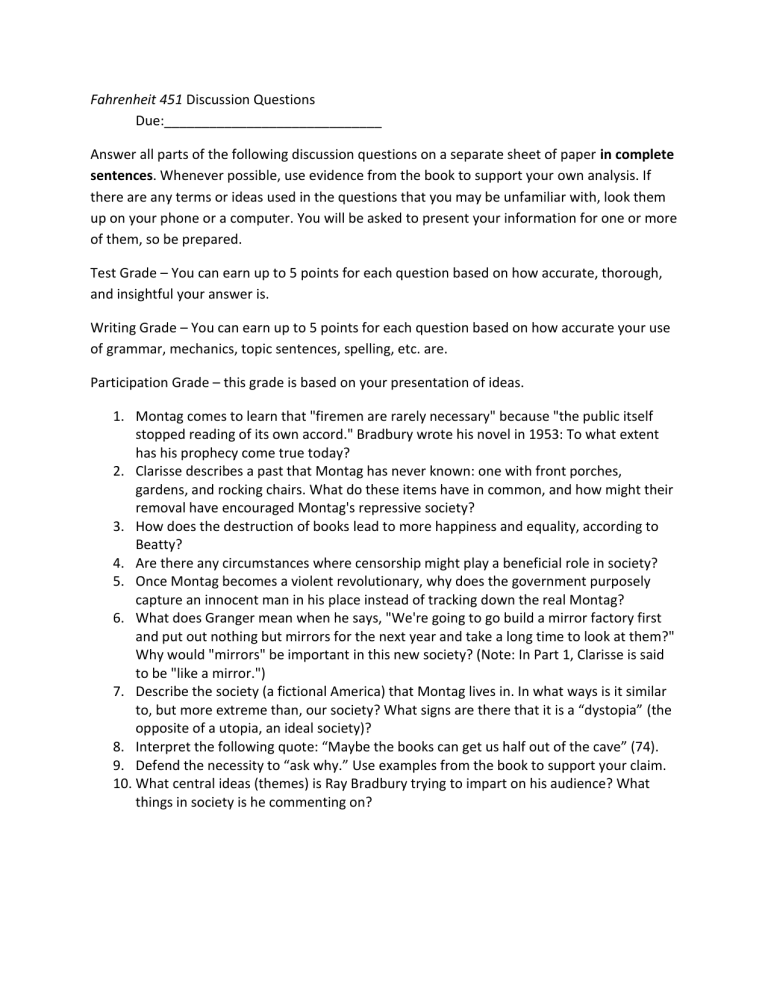
Fahrenheit 451 Discussion Questions Due:_____________________________ Answer all parts of the following discussion questions on a separate sheet of paper in complete sentences. Whenever possible, use evidence from the book to support your own analysis. If there are any terms or ideas used in the questions that you may be unfamiliar with, look them up on your phone or a computer. You will be asked to present your information for one or more of them, so be prepared. Test Grade – You can earn up to 5 points for each question based on how accurate, thorough, and insightful your answer is. Writing Grade – You can earn up to 5 points for each question based on how accurate your use of grammar, mechanics, topic sentences, spelling, etc. are. Participation Grade – this grade is based on your presentation of ideas. 1. Montag comes to learn that "firemen are rarely necessary" because "the public itself stopped reading of its own accord." Bradbury wrote his novel in 1953: To what extent has his prophecy come true today? 2. Clarisse describes a past that Montag has never known: one with front porches, gardens, and rocking chairs. What do these items have in common, and how might their removal have encouraged Montag's repressive society? 3. How does the destruction of books lead to more happiness and equality, according to Beatty? 4. Are there any circumstances where censorship might play a beneficial role in society? 5. Once Montag becomes a violent revolutionary, why does the government purposely capture an innocent man in his place instead of tracking down the real Montag? 6. What does Granger mean when he says, "We're going to go build a mirror factory first and put out nothing but mirrors for the next year and take a long time to look at them?" Why would "mirrors" be important in this new society? (Note: In Part 1, Clarisse is said to be "like a mirror.") 7. Describe the society (a fictional America) that Montag lives in. In what ways is it similar to, but more extreme than, our society? What signs are there that it is a “dystopia” (the opposite of a utopia, an ideal society)? 8. Interpret the following quote: “Maybe the books can get us half out of the cave” (74). 9. Defend the necessity to “ask why.” Use examples from the book to support your claim. 10. What central ideas (themes) is Ray Bradbury trying to impart on his audience? What things in society is he commenting on?

